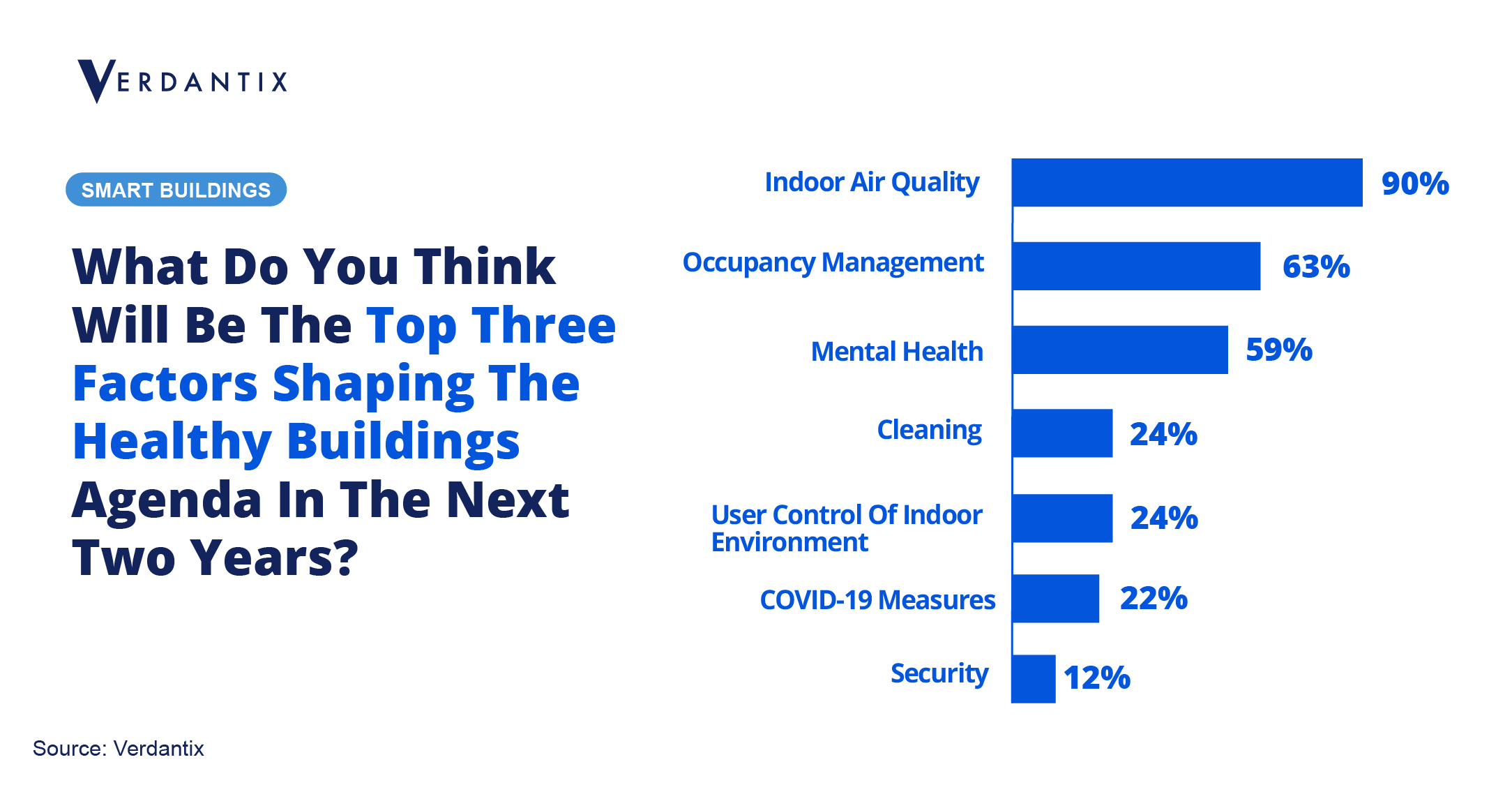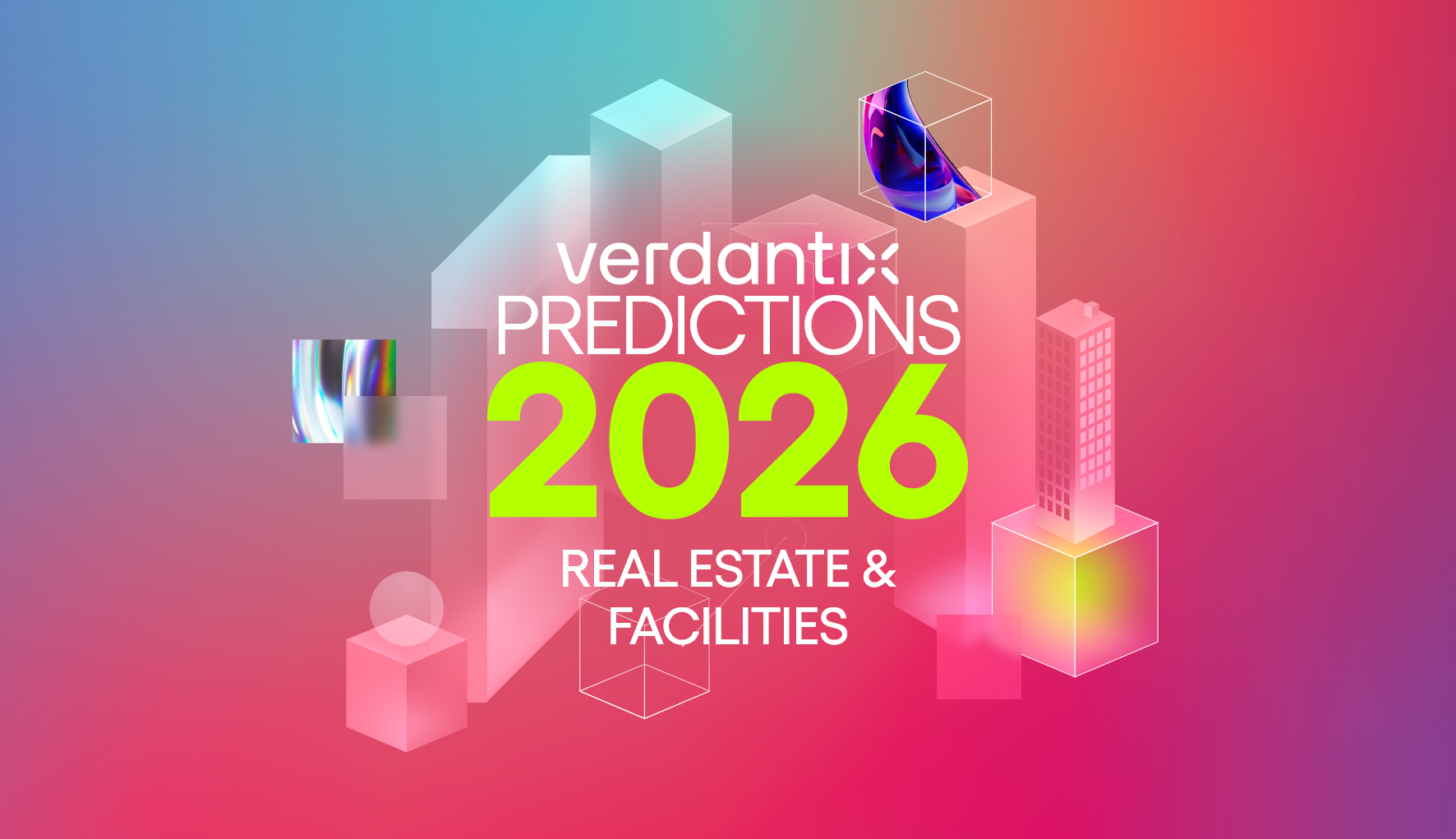Verdantix New Strategies For The Workplace Event: Four Key Takeaways

Ben Readman
On December 7, 2021, hosted an event in central London bringing together real estate professionals and technology executives to explore next-generation strategies for the workplace. The overall theme emerging from the panel discussions and presentations is that the world of real estate and facilities management is getting redefined. Driven by trends such as COVID-19 and digitization, the real estate sector is shifting its focus to optimizing user experience and implementing second-generation hybrid working strategies. Priorities are continuing to change, with healthy buildings currently a big area of focus, while sustainability is moving to the forefront of strategies. The key takeaways from the event are:
1. Employee demands are reshaping workplace propositions
Employee expectations from the workplace have shifted with the move to hybrid working. Staff need a good reason to come into the office now that they have adjusted to working from home and are demanding healthy, human-centric offices that support their productivity, wellbeing and social relationships. Increasingly, attracting and retaining the best talent relies on a favourable and flexible hybrid working proposition. Corporate workplace strategies and visions are being driven by what people want from the workplace, driving appetite for technology and data that plays into optimizing occupant experience. Beyond buildings, forward-thinking facilities executives see the home as an extension of the workplace and are working to support staff at home through wellbeing initiatives and equipment deliveries.
2. The scope of the facilities manager role is being redefined.
The digitization trend and growing focus on occupant experience are changing the remit of Facilities Managers. The widening scope of responsibilities are breaking down traditional silos and expanding facility managers’ networks to include executives across IT and HR. Delivering on new visions requires managers to engage with the broader organization and create buy-in from all team members. As new workplace strategies are rolled out across portfolios, facilities managers must manage local teams in different regions where workplace demands, skills and resources may differ. Further, facilities managers are diversifying their own skill sets to use data and technology to optimize their processes and actions.
3. Implementing healthy buildings requires tackling tough questions.
Our panelists agreed that a slew of barriers are preventing the widespread adoption of healthy buildings. Primarily, the split incentive between tenants and landlords means that different stakeholders cannot agree who should invest. Additionally, the return on investment for healthy buildings remains a grey area and can be difficult to quantify. While the shift is slow, the growing focus on the social aspect of ESG is increasing the attention firms pay to employees through healthy buildings. Firms are planning investment into technology and sensors for indoor air quality to bring new visibility to threats that were previously unseen. In our audience poll, 90% stated that indoor air quality will be the most important factor for healthy buildings in the next two years.
4. High costs are no longer an excuse for lack of action on decarbonization.
While the COVID-19 pandemic continues to drive immediate workplace priorities, sustainability and decarbonization of the building stock remains a key priority for firms. Our panelists believe the traditional barriers to the adoption of energy management technology, such as budget constraints, are steadily breaking down. For example, the growth of decarbonization-as-a-service models means that corporates can upgrade their buildings with zero upfront capital while outsourcing the responsibility of delivering carbon reductions. As firms continue their decarbonization roadmaps, firms plan to broaden the scope of their emission reduction strategies to tackling embodied emissions from materials and building hardware. Firms are recognizing the cost of inaction far outweighs the cost of action.
For more insights on the future of the smart building market, read our latest report 10 Predictions For Smart Building Technology In 2022 And Beyond.

About The Author

Ben Readman
Industry Analyst





